
Viking Names
Snort
Snǫrtr was originally a byname similar in meaning to Norwegian snerting ‘quick fellow’. It is fairly common as a personal name in Iceland. The genitive singular form of the name, Snartar, is the first element in Snarford, Lincolnshire.
Read More
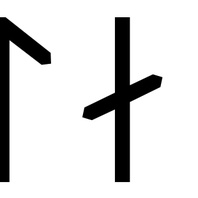
Viking Names
Aslak
The male name Áslákr is common in Norway in both the Viking Age and later, and also occurs in a few runic inscriptions from Denmark and Sweden. It forms the first element of the Nottinghamshire hybrid place-name Aslockton and is also found in Aslackby in Lincolnshire.
Read More

Viking Names
Bark
The Old Norse male personal name Barkr originated as a byname. The name is related to the Old Norse noun bǫrkr (genitive barkar) ‘bark’. One of the settlers of Iceland bore the form Bǫrkr and the name appears as an element in a few Western Scandinavian place-names. Bark is found as a byname in Sweden. Barki is potentially a side-form of Barkr or could be from barki ‘throat’- also a byname. Barkr is the first element in the place-name Barkby, Leicestershire and this place-name was later affixed to Barkby Thorpe, its daughter settlement.
Read More
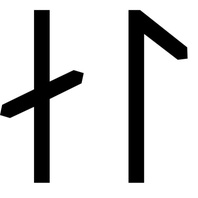
Viking Names
Val
Valr is an original byname meaning ‘hawk, falcon’. Valr is recorded as a male personal name and byname in West Scandinavia and is found in a Swedish runic inscription. Valr is the first element in the place-name Walesby, Nottinghamshire, and a place of the same name in Lincolnshire. Walshcroft Wapentake in Lincolnshire also contains either this name or the Old Norse male name Váli and Old Norse kross, the cross probably marking the location of the Viking Age meeting-place. Cameron suggests that the same man gave his name to Walesby and the wapentake.
Read More
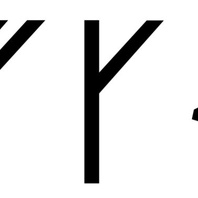
Viking Names
Alfgeir
Álfgeirr was not a common name in Viking Age Scandinavia, but it is attested in all of the Scandinavian countries and Iceland. The personal name was once found as the first element of the place-name Algarthorpe, Nottinghamshire; however, the village is now deserted. The name is an Old Norse compound formed from Álf-, identical with alfr ‘elf’, which is not particularly popular in Scandinavian names, and –geirr, ‘spear’ which is a common element in Old Norse personal names.
Read More
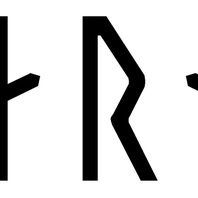
Viking Names
Barni
An Old Norse male name Barni is not certainly found in Scandinavia, although it may be attested in some Danish place-names. An alternative explanation is that Barni is an Anglo-Scandinavian variant of the very common male name Bjarni. The name forms the first element of two places in Nottinghamshire called Barnby.
Read More
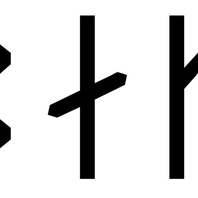
Viking Names
Bak
Bak is an original byname meaning ‘back’ and is not recorded as a given name in Scandinavia. It is the first element in the place-name Baston, Lincolnshire, and is also found as the first element of Baxby, in North Yorkshire.
Read More
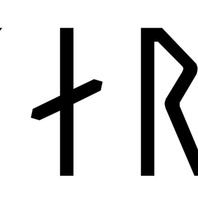
Viking Names
Sumarlidi
Sumarliði is originally a byname meaning ‘summer-traveller’. Although it has also been suggested that it is a variation on Vetrliði ‘a bear in its second year’, the close association of the name with the Viking diaspora supports the ‘summer-traveller’ meaning. These names likely arose in the Atlantic islands as there is one instance of Sumarliði from the early tenth century attributed to a man of Scottish birth, and several from the time of settlement in Iceland (c. 870-930). It does not appear until late in Norway, but there are several instances after c. 1320. The name is found in runic coin legends as the name of a moneyer operating in the Danish town of Lund between 1065 and 1075 – many of the moneyers in Lund actually came from England, where the name is relatively common. Sumarliði is also found in a place-name in Normandy. Sumarliði is the first element in three instances of the place-name Somerby, and one of Somersby, Lincolnshire, and the name is also frequently reported independently as a personal name in Domesday Book for Lincolnshire.
Read More

Viking Names
Toki
Tóki is either a short form of names in Þórkell or possibly a pet-form of name in Þór- ‘the god’s name Þórr’ with the addition of the suffix -ki. The name is very common in Denmark where it is found in many place-names. It possibly spread to Norway and Sweden from Denmark. It is fairly common in Sweden in the forms Toke and Tuke and in Norway from the eleventh century onwards, but it is very rare in Iceland. In Normandy it is probably found as the surname Tocque and occurs in a number of place-names there. The personal name is also the first element in Tugby, Leicestershire.
Read More
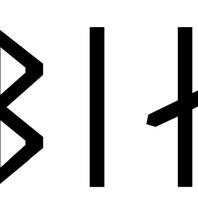
Viking Names
Asbjorn
Ásbjǫrn was a common name in Norway from the time of the settlement of Iceland (c. 870-930) onwards, and is common in Swedish and Danish runic inscriptions. Forms in Æs- are very common in Denmark and a few runic forms likely represent these spellings. Additionally there are numerous instances of the form Osbern found in Normandy which are possibly loans from England. It is a Old Norse compound name with the first element, Ás-, from Old Norse ás, óss ‘a god’, combined with bjǫrn, ‘bear’. It was common for Viking Age Scandinavian personal names to use animals as name-forming elements. Several place-names in Lincolnshire and Yorkshire may include the Low German male personal name Osbern, although the name is more likely to be an anglicised form of Old Norse Ásbjǫrn, as in Osbournby in Lincolnshire, and the name is also recorded in medieval documents from both Lincolnshire and Yorkshire.
Read More
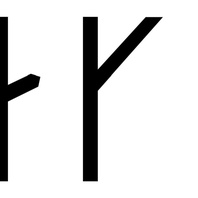
Viking Names
Aki
Áki is probably a diminutive of *ani, an unrecorded word related to Old Norse ái ‘great-grandfather’. The name is frequent in Denmark both independently and in place-names and likely originated in the Danish islands. It is also frequent in Sweden, but does not appear in Norway until about 1300. It is found in one Normandy place-name. The name is well-attested in Lincolnshire and Yorkshire, although some forms may represent the Old English male personal name Acca. Áki is also the first element in the place-name Oakthorpe, Leicestershire
